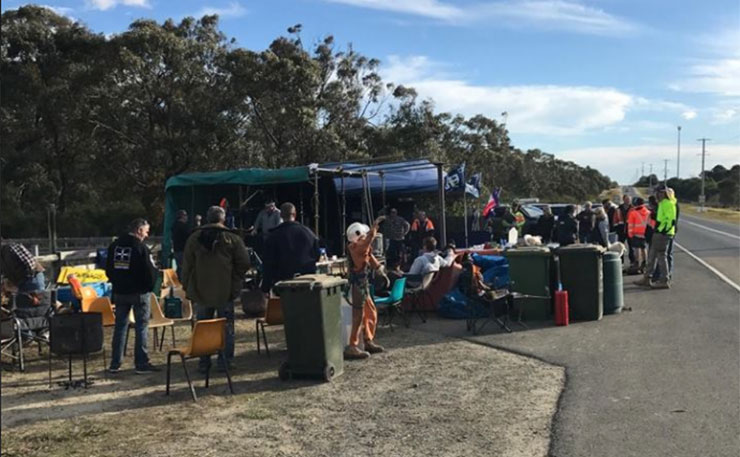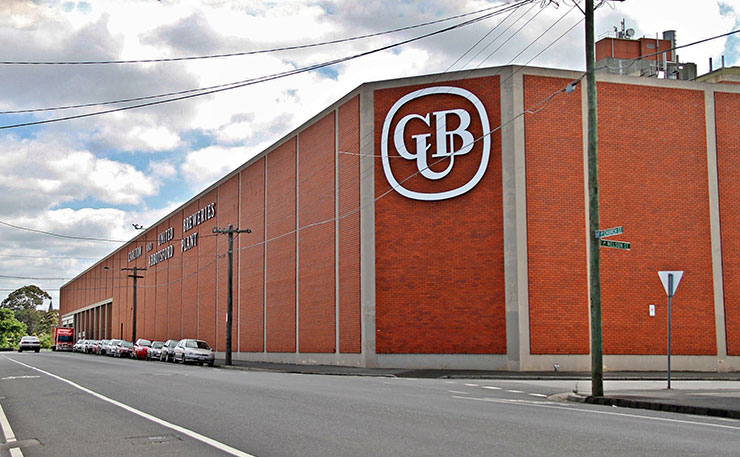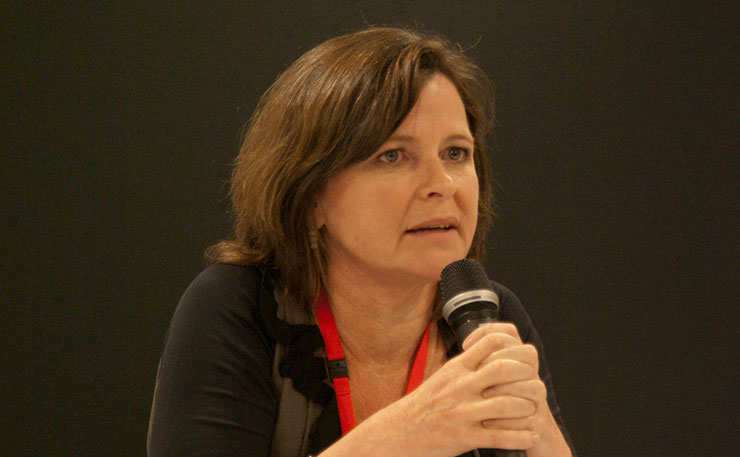Massive corporations who pay no tax can lock workers out to force lower wages. Workers face big fines if they fight back. Welcome to the fight of our time, writes ACTU president Ged Kearney.
200 days. That’s how long workers have been protesting outside a plant in Gippsland owned by Esso, the international oil and gas giant. Why? Because big business, multinational corporations, have too much power.
Esso (or ExxonMobil), put pressure on its contractors to cut wages. UGL, one of its contractors, won a contract to maintain gas equipment by promising to pay workers 30 per cent less. Once UGL won the contract, with the support of Esso, it told workers they could accept the new pay deal, or lose their jobs and be replaced by interstate workers.
Over the last two years in Australia, ExxonMobil reported $15 billion in income. And yet they’ve not paid a cent in tax.
The company can afford to pay these workers properly. But it chooses not to, because it doesn’t think it has to. And they’re not alone.

These are the same tactics used by Carlton United Breweries, who also tried to cut workers’ pay and deny working people the right to negotiate on their own behalf, forcing workers to protest for over 180 days.
Other workers, such as those locked out of their workplace in Port Kembla in New South Wales and in Oaky North in Queensland, have had their enterprise agreement cancelled, and have not been allowed to return to work until they accept drastic pay cuts.
In Australia today, big companies have too much power. Not only are many seeking to fire and rehire employees on significantly lower pay and conditions, they’re also raking in the profits, and refusing to pay tax.
More than a third of all large companies in Australia are paying no tax.
How can they get away with it? Quite simply, big business has too much power. But still the Turnbull Government wants to hand out big business tax cuts, although it’s not clear how a business could pay less than zero tax.
Clearly, the rules are broken when big companies’ profits are going through the roof, and everyone else’s pay is not keeping up with the cost of living. There’s one rule for big business, and another for everyone else.
Working people, in most situations, lack the basic power to negotiate a pay rise. They are farmed off to labour hire companies, contracted out or pushed into insecure work.
This week, Greenpeace International released a report “Justice for people and the planet: Ending the age of corporate capture, collusion and impunity” in which they detail the way in which excessive corporate power is being used to violate workers and environmental rights.
It notes that Australia’s not alone in these issues. Around the world, big business has accumulated so much power, that countries compete through who can provide the most favourable treatment, encouraging free trade with clauses that deny people basic rights, drive down wages, and as Greenpeace notes, cause huge amounts of damage to people and the planet.

The report details the impacts of trade and investment policies that grant companies more power and greater rights than citizens. It also shows in great detail how this power is used to deny people their basic rights.
Big business has effectively lobbied government in Australia to ensure that people do not, except on very rare occasions, have the right to withdraw their labour. We’ve lost this fundamental, internationally recognised, human right, because of the power of big business, facilitated by our government.
Now, workers can be fined heavily for taking industrial action, while no such penalties exist for big business for locking out their workers.
It doesn’t have to be like this. At the heart of this issue has been the attack on organised labour. In 2018, the ACTU are mounting a campaign to change the rules for working people. We want to change the rules to make it easier for people to get and keep a secure job with decent pay.
The fight back against the excessive power of big business is at the heart of many of the campaigns people are waging across Australia at the moment. From the campaign to protect the environment so people can have safe water and air, to the fights for Indigenous people to be able to break the chains of the racist work for the dole schemes, to the attacks on people being assaulted with robo-debts and drug tests to access a basic living.
The Australian union movement understands that this is the fight of our time.
Donate To New Matilda
New Matilda is a small, independent media outlet. We survive through reader contributions, and never losing a lawsuit. If you got something from this article, giving something back helps us to continue speaking truth to power. Every little bit counts.




